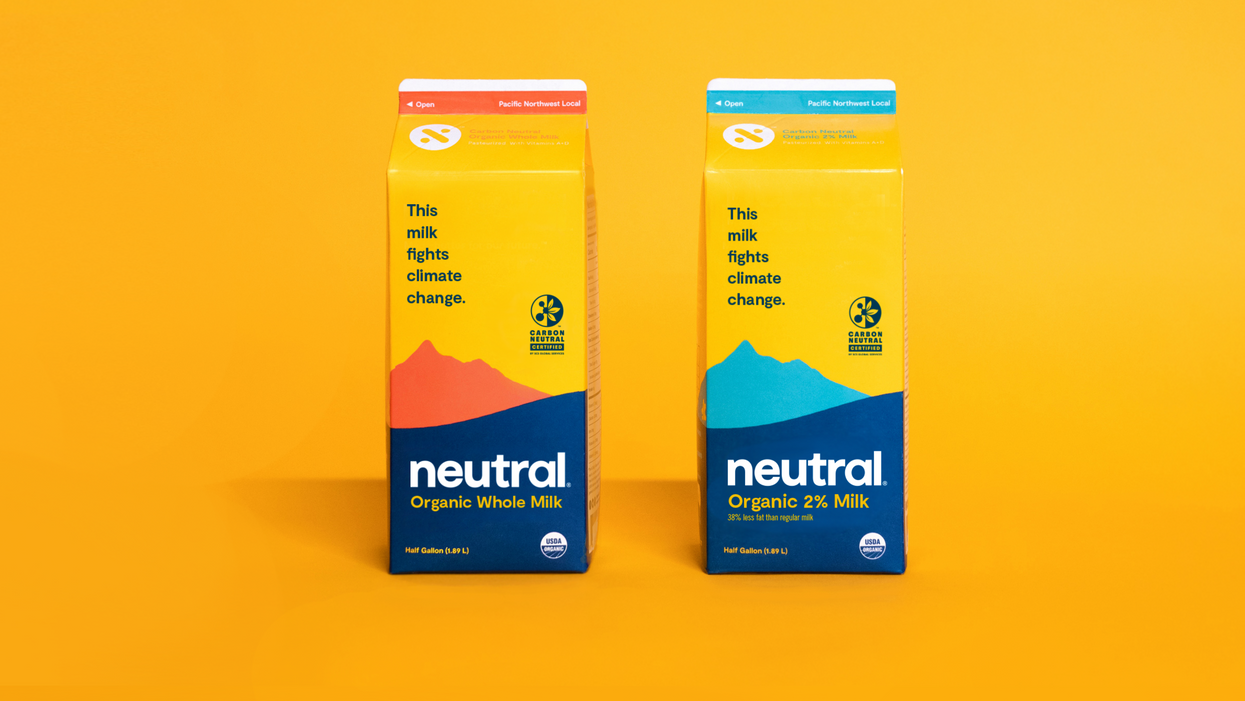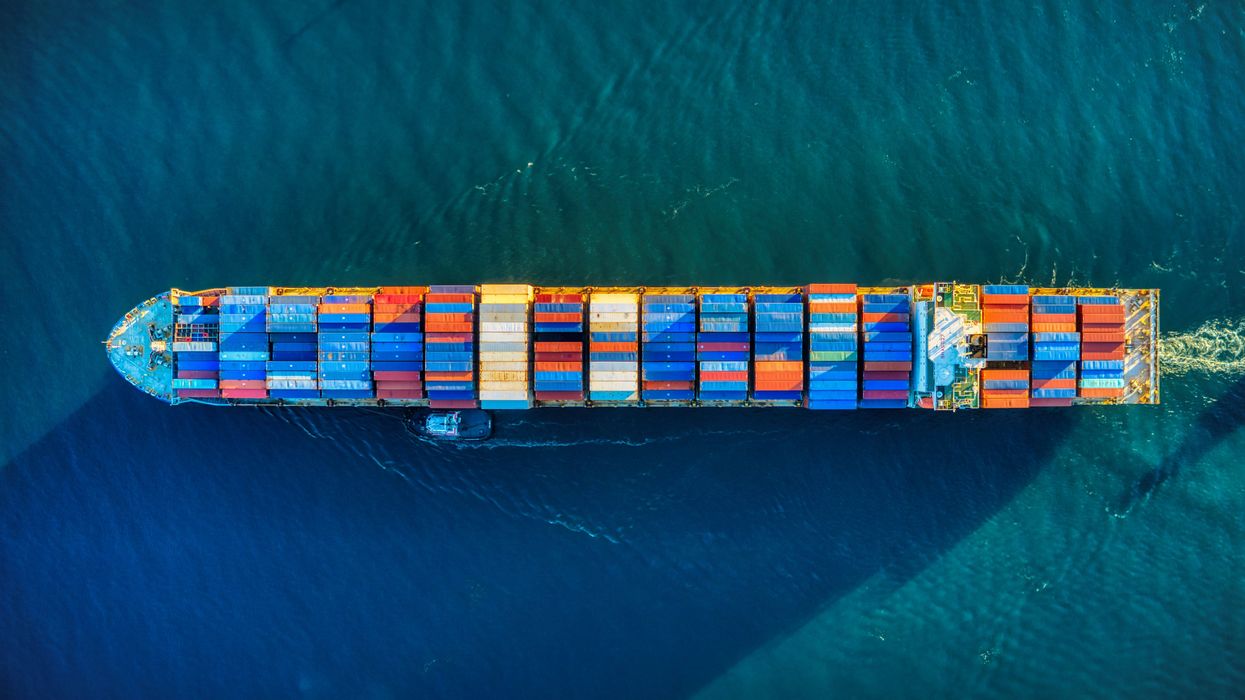This week, consumer brands are attracting celebrity investors, global companies are growing their portfolios and mergers are bringing together platforms in the product discovery and influencer marketing spaces.
Here’s a rundown:
M&A
Haircare brand Briogeo acquired by The Wella Company
Natural haircare brand Briogeo was acquired by The Wella Company, a global beauty leader that owns brands including Clairol, Nioxin and O·P·I.
Launched in 2013 by Nancy Twine, New York-based Briogeo says it offers haircare products for “every hair type, hair texture, hair need, ethnicity, background, and person.”
“Briogeo's high-growth, eco-ethical and natural hair care products complement our existing hair portfolio and sustainable offerings and will fuel our growth momentum in the hair category, which is now the fastest growing segment in beauty," said Annie Young-Scrivner, CEO of The Wella Company, in a statement.
The Wella Company stated that the acquisition will bolster its efforts to deliver products that reach a diverse consumer base, and are made in an environmentally-friendly way.
In turn, Briogeo will benefit from The Wella Company’s R&D, digital marketing and ability to reach 91 million hair and nail professionals.
Terms of the deal were not disclosed.
Karl Lagerfeld acquired outright
Global apparel and accessories company G-III Apparel Group announced a deal on Monday to acquire full control of the fashion brand Karl Lagerfeld.
Under the terms of the deal, G-III will acquire an 81% stake in the brand for $210 million from a group of investors. This adds to the 19% stake that G-III already owns.
G-III believes the acquisition can unlock a retail sales opportunity worth more than $2 billion. The namesake of the iconic German fashion designer, Karl Lagerfeld will continue to be led by CEO Pier Paolo Righi. The brand has a global digital and retail presence. This includes 120 brick-and-mortar stores, and digital channels including www.karl.com and www.karllagerfeldparis.com.
“Since acquiring a stake in the brand in 2015, G-III has built Karl Lagerfeld into an important and rapidly growing part of our North American business,” said G-III CEO Morris Goldfarb, in a statement. “Fully owning this visionary brand is a continuation of our successful partnership with the Karl Lagerfeld management team. Importantly, the addition of this iconic fashion brand to the G-III portfolio advances several of our key priorities, namely an increase in the direct ownership of brands and their licensing opportunities and further diversification of our global presence."
G-III owns and licenses more than 30 brands, including DKNY, Calvin Klein and Tommy Hilfiger.
The acquisition is expected to close in the second or third quarter of fiscal year 2023.
Centric Brands adds hosiery
Lifestyle brand collective Centric Brands announced the acquisition of the hosiery division of Daytona Apparel Group.
The deal, which was completed on March 27, will bring the hosiery business under Centric’s accessories division. It also adds license agreements for Centric with brands including Stanley, Free Country, Real Tree and Umbro.
Centric Brands has license agreements with more than 100 brands to sell products through mass-market retailers, specialty and department stores, and ecommerce channels.
The Fascination acquired by Stack Commerce
Commerce and content platform StackCommerce announced the acquisition of The Fascination, a marketplace for discovery of mission-driven DTC brands.
Launched in 2020 by cofounders Leesa Sleep, David Wolfe and Matt Hayes, The Fascination offers a digital space to research and shop consumer brands, with a focus on helping users to identify those that align with their values. The Fascination now features more than 200 brands, including Allbirds, Burrow, Warby Parker, Caraway, Keeps, Daily Harvest, Brooklinen.
StackCommerce partners with 1,000+ publishers and 5,000+ brands to offer product discovery solutions. Joining StackCommerce will bring scale for The Fascination, whose CEO David Wolfe commented in a news release that, “StackCommerce gives us the kind of exposure to consumers that it would have taken us years to build.”
“The Fascination has built out a well-curated collection of quality-proven DTC brands and premium content that will now be accessible to all of Stack’s publisher partners, bringing us another step closer to being the go-to commerce solution for anyone with an engaged audience,” said Karl House, president of StackCommerce, in a statement. “We’re really excited about the product discovery, SEO expertise, impeccable design, and trendsetting energy the team brings to the table and can’t wait to see how consumers respond to these new brands.”
Terms of the deal were not disclosed. The deal follows StackCommerce’s Jaunary acquisition of affiliate management firm BrandCycle.
Mavrck merges with the maker of Linkin.bio
A pair of influencer marketing platforms are joining forces, as Mavrck is merging with Later in a deal that was financed by a $135 million strategic investment by Summit Partners.
According to Techcrunch, Later makes social media marketing tools for multiple platforms. Its offerings include Linkin.bio, a service for Instagram that has seen more than two billion pageviews. Linkin.bio analytics will now appear in Mvrck’s platform, which is used by marketers at consumer brands to discover and collaborate with influencers.
Here’s how Mavrck CEO Lyle Stevens explained the combination in a news release:
“Creators add tremendous value to brands, but the ability to measure that value remains a challenge – creating tension between brands and the creators with whom they collaborate. Together, Mavrck and Later are committed to building an ecosystem of trust between marketers and creators — powered by proprietary data and designed to add transparency to the compensation process and fuel the growth of the creator middle class. Specifically, incorporating Later’s social insights into the Mavrck platform will help brands search for creators based on historic traffic generated by Later’s link-in-bio solution and, in turn, help drive a better brand fit. Creators become more desirable to brands when they’ve demonstrated an ability to convert consumers to action, improving their likelihood to monetize and collaborate with leading global brands.”
Meta acquires virtual sizing startup
The parent company of Facebook and Instagram is adding an augmented reality tool for sizing. According to Fashion United, Meta acquired Munich-based startup presize.ai. Founded in 2019, the company’s technology uses a smartphone camera to scan the body. AR and VR capabilities are in focus as Meta embarks on its strategy oriented around the metaverse.
FUNDING
Hair color brand Madison Reed raises $33M
DTC hair color brand Madison Reed raised $33 million to grow with an omnichannel approach that includes in-person locations.
The investment was led by Sandbridge Capital, with participation from Marcy Venture Partners, the venture firm cofounded by hip-hop mogul Jay-Z.
Founded in 2014, San Francisco-based Madison Reed grew with an omnichannel model that includes 60 in-person Hair Color Bar locations, direct-to-consumer sales and a retail presence. According to a news release, the company has plans this year to add 20 Hair Color Bar locations, hire 850 colorists and expand its product line.
This growth strategy is being led by CFO Jose Zuniga, who joined the company in March from Dollar Shave Club. The addition of Sandbridge Capital and Marcy Venture Partners will also offer retail and beauty expertise.
Higg raises $50M to measure sustainability
Supply chain sustainability platform Higg raised $50 million in a Series B funding round co-led by Silversmith Capital Partners and Galvanize Climate Solutions, a venture firm cofounded by prominent investors Tom Steyer and Katie Hall.
Higg, which launched in 2019, developed software that allows consumer goods companies to measure, manage and share data about the environmental impact of their operations across the supply chain. The San Francisco-based company said its software has nearly 50,000 brand and manufacturer users in more than 100 countries.
After making inroads in the footwear and apparel industry, Higg is planning to expand into more consumer goods categories, including outdoor, automotive, toys and home goods.
"While we urgently need improvements in carbon and clean energy, Higg is accelerating transformation across the board," Steyer, a former Democratic presidential candidate, said in a statement. "Reimagining sustainability within consumer goods is an interconnected challenge, and Higg's technology addresses this throughout the supply chain."
Joining the round were Titan Grove and Buckhill Capital, both of whom participated in Higg’s Series A round.
Beyoncé invests in Lemon Perfect
Hydrating lemon water brand Lemon Perfect raised $31 million from a network of investors including iconic artist Beyoncé Knowles-Carter.
Atlanta-based Lemon Perfect makes lemon water that is zero sugar, and has no artificial flavors or sweeteners.
“I don’t typically enjoy drinks without added sugar, but Lemon Perfect is delicious,” said Knowles-Carter, in a statement. “It was an easy decision to invest in something that not only tastes great and is healthy, but also, and most importantly, allows choosing a healthier lifestyle to be affordable and accessible to everyone.”
The company is planning to expand to 40,000 points of distribution by the end of 2022.
LeBron James, Questlove invest in Neutral Foods
Carbon neutral dairy products company Neutral Foods received investment from a roster of prominent athletes and musicians including:
- NBA stars including LeBron James and his business partner Maverick Carter, Tobias Harris and Kevin Love.
- Musicians John Legend and Questlove
- Model and entrepreneur Emily Ratajkowski and her husband producer, Sebastian Bear-Mclard
- Professional soccer player Carlos Bocanegra.
The Portland, Oregon-based company’s carbon-neutral milk is on shelves in nearly 500 Whole Foods Market locations, as well as 200 regional and independent grocers. The company is planning rapid expansion, with a goal of reaching 1,200 stores by summer, and doubling that number by the end of the year.
Neutral Foods works with dairy farmers to reduce carbon emissions, and offsets the remainder by purchasing carbon credits from US dairy farmers who turn cow emissions into renewable energy.
Endur Apparel is now Outway
Performance sock brand Endur Apparel rebranded as Outway following a $3.2 million investment.
The Victoria, British Columbia-based brand was founded in 2016 by former pro cyclist Rob Fraser after he identified a gap in the athleisure market.
"This rebrand is our butterfly moment. Over the past [five] years we've grown and evolved, and although today we look a little different, our essence remains," Fraser said in a statement. "We're now able to spread our wings to take our brand to all-new heights, powered by the same team, products, and community."
The investment, which will help with brand positioning under the new name, was led by Andrew Wilkinson of Tiny. It included participation from Shane Parrish, Jason Warner, Jonathan Becker, Rasool Rayani, Ben Moore, Tobyn Sowden, Janene Scordo, Tina Swinton, Rajiv Khaneja and Carla Matheson.
Looking for more M&A and VC news? Find the Dealboard archive here.












